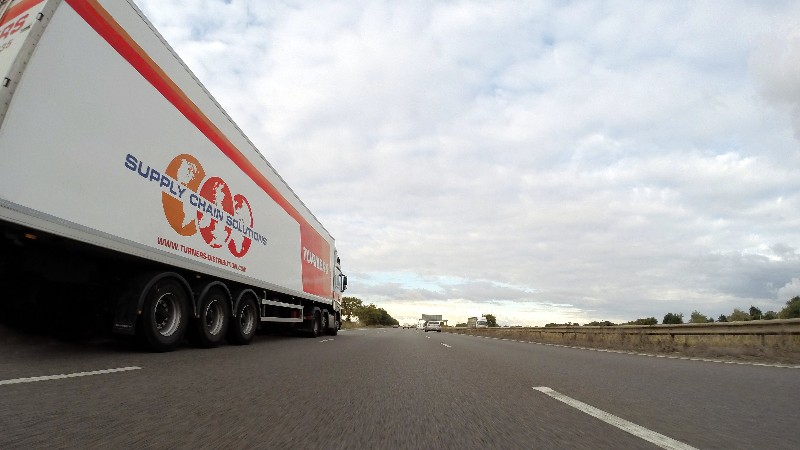
The complex food supply chains which bring fresh food to supermarket shelves are the product of increased globalisation and a drive to reduce costs and improve efficiency.
This is the topic of an ongoing research project on food safety in Europe, led by Dr Seamus O’Reilly in Cork University Business School at UCC. Dr O'Reilly was co-chair of a recent UCC-Teagasc workshop on “Food Supply Chain Integrity on the Island of Ireland: the potential of blockchain technology.
The development of Just-in-Time delivery systems allied to End-to-End traceability allows fleets of delivery vehicles bring a variety of foods to consumers who trust that producers have taken every effort to ensure the safety of their produce.
Unsurprisingly however, these fluid supply chains are exposed to threats which range from ideologically or politically motivated attack to everyday food safety concerns.
Although such threats have always existed, there is now a growing concern due to the complexity of modern food supply chains which could potentially be disrupted by any number of actors ranging from disgruntled employees, rogue businesses looking to cut corners, or bio-terrorists.
The inbuilt vulnerabilities associated with modern supply chain were recently exposed in Australia, where a perpetrator inserted needles into scores of strawberries before they were distributed across the country.
While the introduction of measures such as HACCP (Hazard Analysis and Critical Control Points) have done a great deal to manage food threats resulting from safety incidents, food fraud events such as the horse meat scandal have also exposed weaknesses in the supply chain system.
In the weeks that followed the scandal, public confidence was seriously impacted as sales of beef burgers and readymade meals plummeted after beef adulterated with horse meat was found in products across Europe.
At a European level, the authorities responded by encouraging cross border information sharing and by introducing new regulations against what it termed as “fraudulent or deceptive practices along the agri-food chain”.
In addition, the EU also required the relevant national authorities to take account of “potential risks and the likelihood” of such events occurring in future. For Dr Seamus O’Reilly, this means developing preventative counter measures against offenders by encouraging authorities to “think like perpetrators”.
Perpetrators analyse factors to identify areas where the potential for profit or damage is high and the chances of detection are low or the consequences of being caught are light.
We need to create an environment which aims to increase the risk of detection, reduce the opportunity for profit and increase the consequences of being caught.
Dr Seamus O’Reilly’s research highlights the need for authorities to consider developing countermeasures against vulnerabilities which may never have occurred before, may never occur again, or where there may only be a potential opportunity for a food fraud event to occur.
Information sharing and collaboration among stakeholders at each level of the supply chain is key to developing such a preventative strategy. For example, sharing data and use of data analytics can allow authorities to identify factors such as price spikes in certain ingredients which may motivate perpetrators to act.
Being in a position to identify these threats enables authorities to allocate resources and investigate suspect behaviour before a food fraud event takes place. At present for example, given the recent increase in the price of black pepper, authorities around the world may be well served by keeping a close watch on black pepper supplies, which have previously been adulterated with papaya seeds.
The development of rapid testing methods in recent years have also bolstered the tools at the disposal of organisations like the European Food Fraud Network. Despite their limitations, rapid testing allows authorities to act on intelligence and search the exact adulterations they are looking for.
Dr O’Reilly’s research also points to strategies private companies can themselves deploy, such as vulnerability assessments and related countermeasures, to the implementation of various industry standards and accreditation initiatives such as the Global Food Safety Initiative (GFSI).
Since certification is a requirement for doing business in many contracts, non-conformant businesses are effectively removed from the supply chain. In addition, those organisations who breach the terms of their certification suffer major brand and reputational damage, which in turn makes the business environment less attractive for potential offenders.
Given the implications of Brexit, where Ireland will share the only land border between the EU and the UK, and the fact that Irish agri-food sector is worth more than €12.5bn on a whole island basis, Dr O’Reilly’s research is particularly pertinent.
Current research, undertaken in conjunction with Dr Maeve Henchion, Teagasc, is funded by safefood. This ten month research project, involving Prof. Thia Hennessy, Dr Seamus O’Reilly and Dr Alan Sloane, will assess the Irish food industry’s level of awareness of food fraud and food threats.
Due to be published in December, the study will examine the approaches taken in the UK, Netherlands, US and Denmark to determine the feasibility and benefits of integrating the strategies employed in those countries into food supply chains in Ireland.
The study will then give rise to a 4-Year PhD fellowship funded by the Teagasc Walsh Fellowship and Musgrave Group, designed to better understand and protect food supply chain integrity.
Moving well beyond food marketing and product development, research into this aspect of food business demonstrates the breadth of expertise at Cork University Business School.

